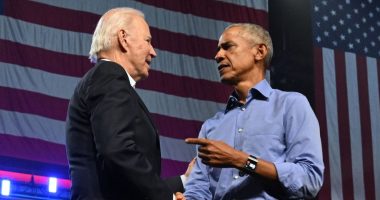WASHINGTON — Former Trump adviser Steve Bannon cannot argue at his trial on charges of contempt of Congress that he is not guilty because he was following the advice of his lawyer, a federal judge ruled Wednesday.
U.S. District Court Judge Carl Nichols said that such a defense is not available in a contempt of Congress case, dealing Bannon’s defense a major setback. He faces trial in July.
“It’s a serious blow, because he doesn’t have another good defense,” said Joyce Vance, a former federal prosecutor. “He’ll now have to make a decision about whether to proceed to trial or try to cut some kind of deal.”
Bannon was indicted in November by a federal grand jury, charged with two counts of contempt of Congress for refusing to answer questions from the House committee investigating the Jan. 6 Capitol riot. One count accused him of refusing to appear for a deposition and the other was for declining to produce documents requested by the committee.
If convicted, Bannon, who is 68, could be sentenced to a year behind bars and a fine of up to $100,000.
One of Bannon’s lawyers, Robert Costello, told the Jan. 6 committee last fall that his client would not comply with the subpoena. In a letter, he said former President Donald Trump was choosing to assert executive privilege and encouraging his former aides not to reveal anything that might be covered by the privilege.
On the day Bannon was indicted, another of his lawyers, David Schoen, said the advice of counsel issue would be an important one. “Mr. Bannon acted as his lawyer counseled him to do by not appearing and by not turning over documents in this case. He didn’t refuse to comply, he made quite clear that if a court ordered him to comply, he would do that.
“A layperson has to follow his attorney’s advice, in my view at least, when he’s faced with a subpoena — he doesn’t know anything about legal process otherwise. He relies on a lawyer, and the lawyer gave the advice,” Schoen said.
Obtaining a conviction for any crime requires proof of acting with improper intent, and some federal courts have ruled that good faith reliance on the advice of counsel is a complete defense in a criminal contempt action. But Nichols said the U.S. Court of Appeals for the District of Columbia has ruled otherwise.
In a 1961 case, the appeals court said that “reliance upon advice of counsel is no defense to a charge of refusing to answer a question …. All that is needed … is a deliberate intention to do the act. Advice of counsel does not immunize that simple intention.”
Bannon’s lawyer argued that his case was different because it also involved the issue of executive privilege, but Nichols said that made no difference on the issue of Bannon’s intent.
In a statement Wednesday, Schoen said the Supreme Court ruled in 2020 that executive privilege applies in response to a legislative subpoena, and the 1961 decision relied on by the appeals court is impossible to reconcile with that principle.
Applying that standard to Bannon case “in effect gives Congress a veto over the executive branch’s invocation of executive privilege, and that creates a very serious separation of powers problem,” Schoen said.
He said Bannon’s lawyers will argue at the trial that the contempt of Congress statute is unconstitutional.
Source: | This article originally belongs to Nbcnews.com










